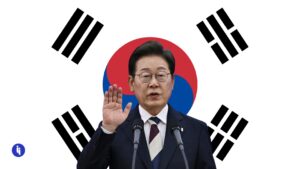Venezuela’s Nicolás Maduro has warned that his own re-election this Sunday is the only way to “avoid a bloodbath, or a fratricidal civil war triggered by the fascists”, triggering a rare rebuke from Brazil’s President Lula next door.
How’d we get here? A former bus driver and trade union leader, Nicolás Maduro rose under his socialist mentor and predecessor, Hugo Chavez.
Chavez had spent 15 years remaking the country in his own image: seizing its levers of power and stifling dissent, while using Venezuela’s oil reserves (the world’s largest) to drive poverty down and Venezuela’s influence up.
Stay on top of your world from inside your inbox.
Subscribe for free today and receive way much more insights.
Trusted by 129,000+ subscribers
No spam. No noise. Unsubscribe any time.
But then around 2013, the music stopped: oil prices crashed, Chavez died, and when his anointed successor (Maduro) tried to hit the accelerator, he blew the engine instead: debt spiralled, inflation soared, and unrest grew.
So Maduro responded with more repression and eight million Venezuelans fled, while he orchestrated a 2018 election widely seen as a sham.
And that brings us to this Sunday’s coming vote.
Despite the US rolling back sanctions in exchange for Maduro’s promises of a fair ballot, loyalist authorities have banned popular opponents like María Corina Machado, and even arrested her security chief earlier this month.
But Venezuelans aren’t easily discouraged. The opposition has now settled on an absolute Hail Mary of a candidate: a relatively obscure 74-year-old former diplomat, Edmundo González Urrutia (yay former diplomats).
And despite the slim odds of a fair election, and this last-minute opposition candidate getting absolutely lobbed from way downtown, over two-thirds of folks still say they’ll vote (up from 46% in 2018). And how will they vote?
The credible, independent polls give the opposition a big lead.
So we’ll see what the electoral authorities say after Sunday’s vote. But more importantly, we’ll see what Maduro says.
Despite the opposition urging reconciliation, Maduro and his inner circle have little incentive to cede power in the face of US criminal charges, an International Criminal Court investigation, and millions of angry citizens back home.
But any Maduro claims of another ‘re-election’ would be messy too, bringing more international isolation, pushing another 40% of the remaining Venezuelans to leave, and offering little hope for a way out of this mess.
INTRIGUE’S TAKE
One of the many questions the regional and international community should probably ask is whether there’s anything we could – or should – have done to avert all this. It’s not just a mess for Venezuelans, but also:
- Neighbouring Guyana finding itself on the receiving end of Maduro’s territorial threats (stoking nationalist vibes in his favour)
- The entire region struggling to absorb millions of desperate migrants, and
- A global economy that saw a massive, affordable energy source wasted by years of corruption and ineptitude.
But nothing’s really worked, and some would argue the various international responses might’ve made things worse:
- Even with maximum isolation, Maduro still scored invites to visit ambitious world leaders like China’s Xi or Brazil’s Lula
- Tighter US sanctions in 2017-18 didn’t oust him, but offered ‘tangible proof’ it was all a gringo plot, and gave him someone to blame for the economic collapse (which had begun years earlier), and
- Ditto for the world’s backing of a rival ‘interim president’ (Juan Guaidó), who self-declared before having to flee to Miami last year.
So at the end of the day, much still depends on Maduro, and that means we could soon see any number of paths unfolding after Sunday: a vanquished Maduro seeking asylum in Cuba; or negotiating a ‘power-sharing’ deal with the opposition; or taking some off-ramp brokered by Brazil; or yes, digging himself deeper.
Take your pick, Nicolás.
Also worth noting:
- González (the opposition candidate) has continued to refer to Machado (his disqualified predecessor) as “the leader of the opposition” and “the leader of this unifying process“.







